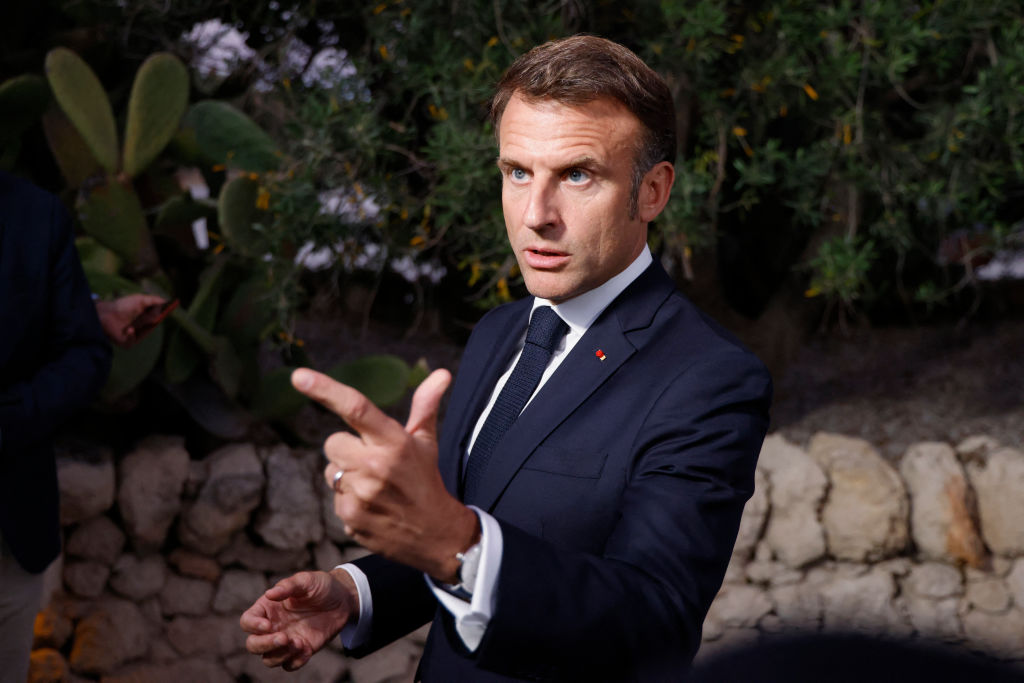This should have been their night. Marine Le Pen’s Rassemblement National (RN), once at the extreme fringes of French politics, that only had two MPs as recently as 2017, seemed poised to become the largest parliamentary bloc. Parisian shops set up barricades in case of feverish anti-RN protests. The scene was set for a nationalist big bang. But instead, Le Pen’s party got an electoral whimper with around 150 seats.
The story is now about how centrist and Leftist politicians stopped them by tactically removing over 220 candidates in the constituencies where RN qualified for three-way races. Their voters mobilised en masse. In the words of the Economist, the “centre” held and the RN severely underperformed even the most pessimistic pollsters.
In effect, this proves that the most important question this campaign raised, ahead of any substantial policy debate, was fear of the RN. Fundamentally, the only question on the ballot was whether the French wanted Jordan Bardella to be their next prime minister. And a majority of voters have decided against it.
It does leave France’s parliament in a fractious state. With 33% of the vote, the UK’s Labour Party won 65% of seats. With 33% of the vote in the first round, Le Pen managed 25% of seats. A system made to provide strong parliamentary majorities is giving birth to a parliament splintered into millions of confettis à la Dutch. If the French avoid having to resort to a technical government à l’Italienne, in the middle of this colourful mess there might be a coalition somewhere.
Macron will have to appoint a prime minister but that prime minister will need a majority. If you remove the seats of the RN and those of Jean-Luc Mélenchon’s Left-wing La France Insoumise — which has sunk any possibilities of working in a coalition with their ambiguities on antisemitism — then the President is left with around 360 seats. He needs to find 289 MPs to form a coalition. On paper, the centre-right and the Macronists would be short. However, it seems as though the Macronist bloc could be added to the non-Melenchon Left (the communists, the socialists and the greens) and just get a majority.
This is not without irony. French public opinion is probably the most Right-wing it has been in the history of the Fifth Republic (in the European elections the Right, bar Macron, won 44% of the vote) and yet France could end up forming one the most Left-wing governments since 1981. It’s hardly a done deal that Macron could lure the centre-left. The socialists have committed to staying united — which is what they should do to increase their bargaining power — but that’s the only road to 289 MPs that seems feasible.
Disagreements with the Left seem considerable, including on fiscal policy, immigration or education. Macron has signalled he is ready to make some concessions by freezing a bill that would tighten unemployment benefits, but how many 180-degree turns could he swallow? Not least because after this snap election, it’s unclear how loyal the “Macronist bloc” would remain to a lame-duck boss who has nearly succeeded in making them lose their jobs over an attempted act of political suicide. Some of them are also thinking about the next presidential election and will try to dissociate themselves both from Macron and the Left.
And even with the best goodwill in the world, that fragile coalition will be put under immense pressure with the upcoming budget in the autumn. Macron has optimistically committed to rein in the deficit, currently at 5.5% of GDP, back to 3% by 2027. The stakes are considerable for a country with a debt worth 110.6% of its GDP. The European Commission has opened a procedure for excessive deficit. Rating agencies have already been tracking very closely when they have not already downgraded France.
Hard budgetary choices were going to have to be made and the parliamentary arithmetics were already so difficult that the government would likely have been censured. Add to that an even more fractious coalition, with the Left promising another €179 billion of public spending and centrists wanting to return to fiscal discipline, and we have an explosive mix.
The one thing they might be able to agree on is reworking France’s institutions. The country’s unique electoral model has so far kept Le Pen at bay, but for how much longer can it keep this up? The day the dam breaks, Le Pen could well go from an electoral famine to a political feast by grabbing both a parliamentary majority and the presidency. Especially because the RN would be the official opposition to a Frankenstein coalition having to make unpopular choices.
Within Macron’s universe, many have been making the case for a more proportional system. He has long promised a reform of France’s institutions. After his failed bet, trying to style himself as the founding father of a renewed French Republic might be his best attempt to save his legacy.











Join the discussion
Join like minded readers that support our journalism by becoming a paid subscriber
To join the discussion in the comments, become a paid subscriber.
Join like minded readers that support our journalism, read unlimited articles and enjoy other subscriber-only benefits.
Subscribe